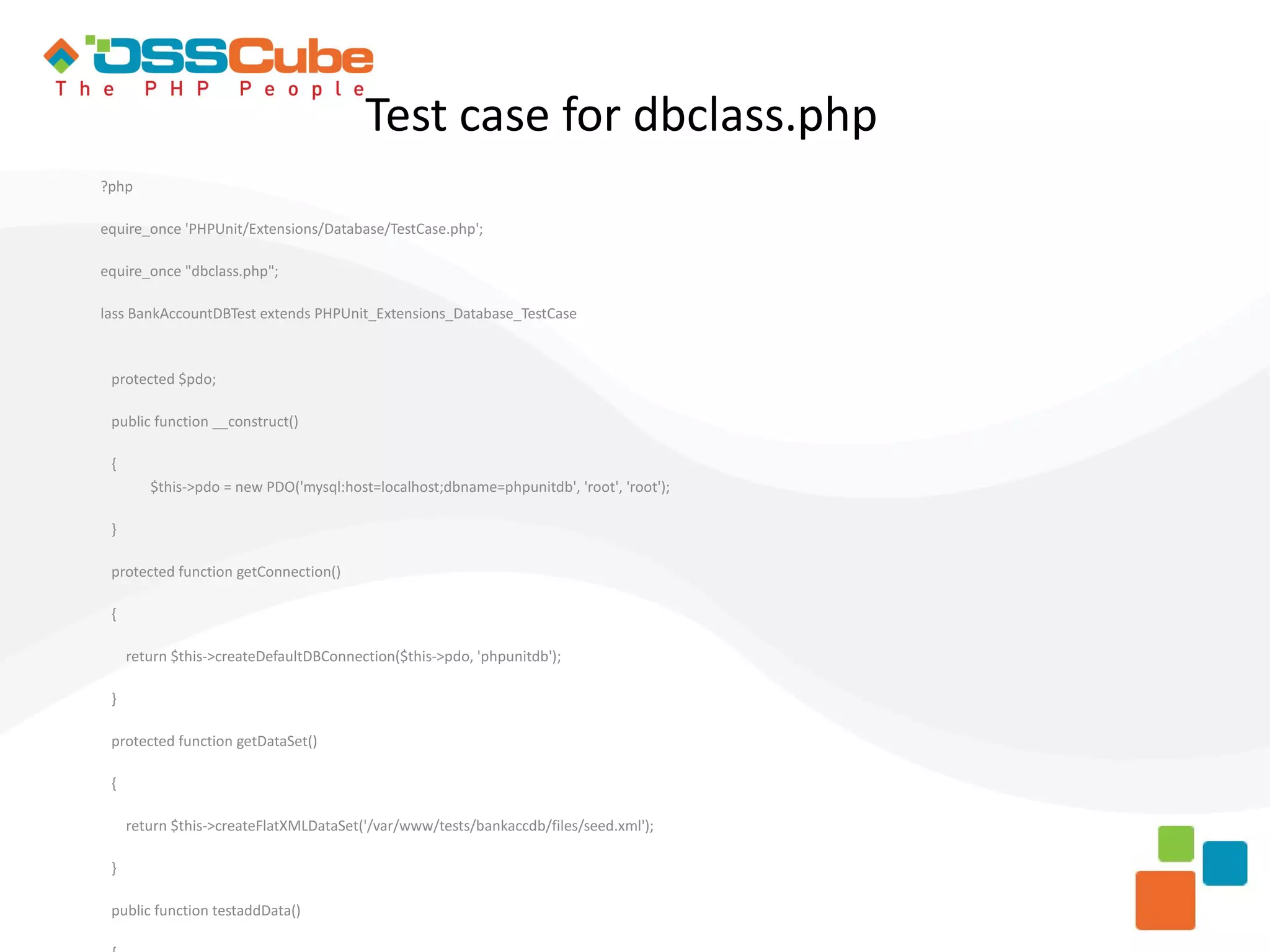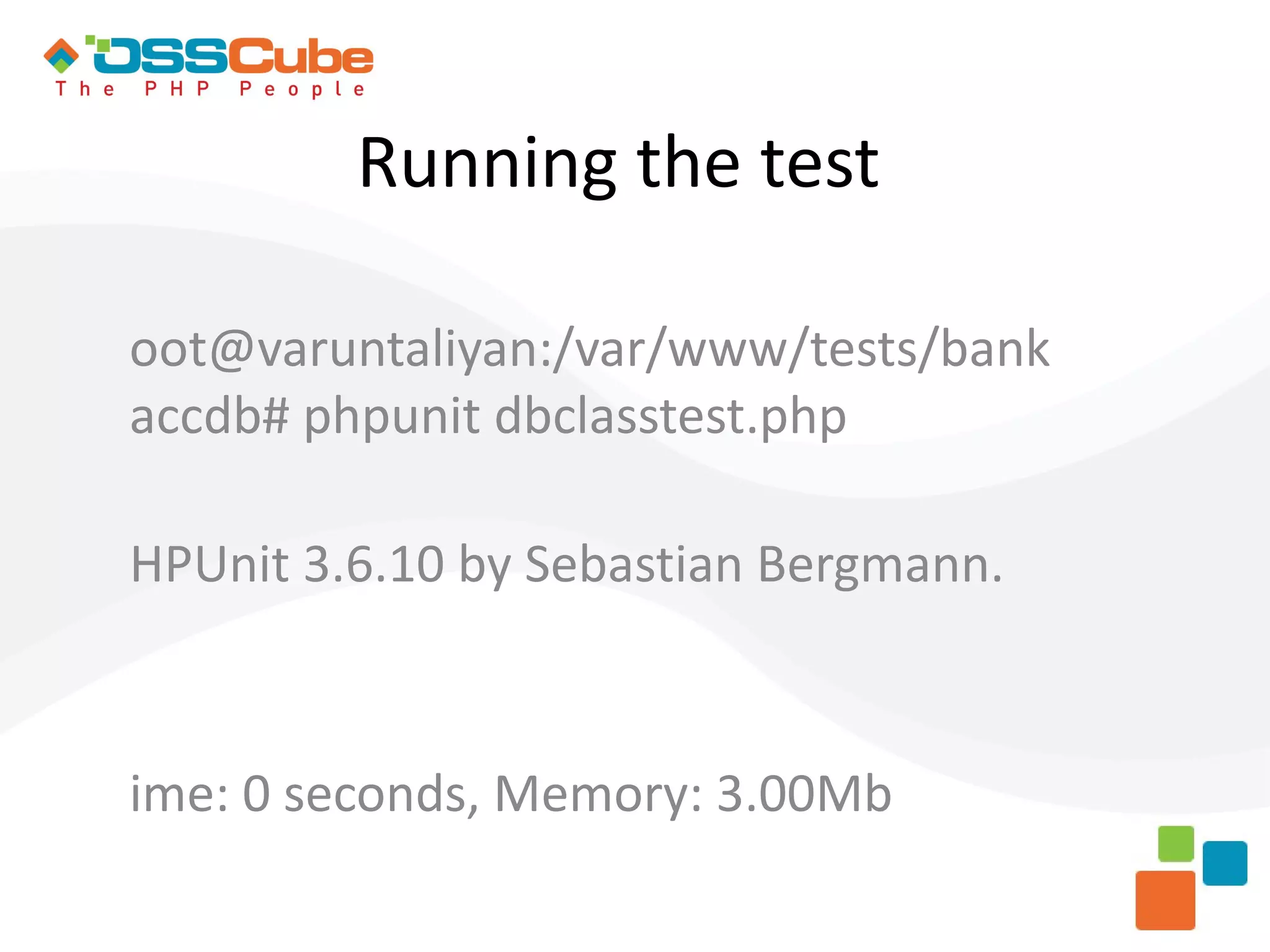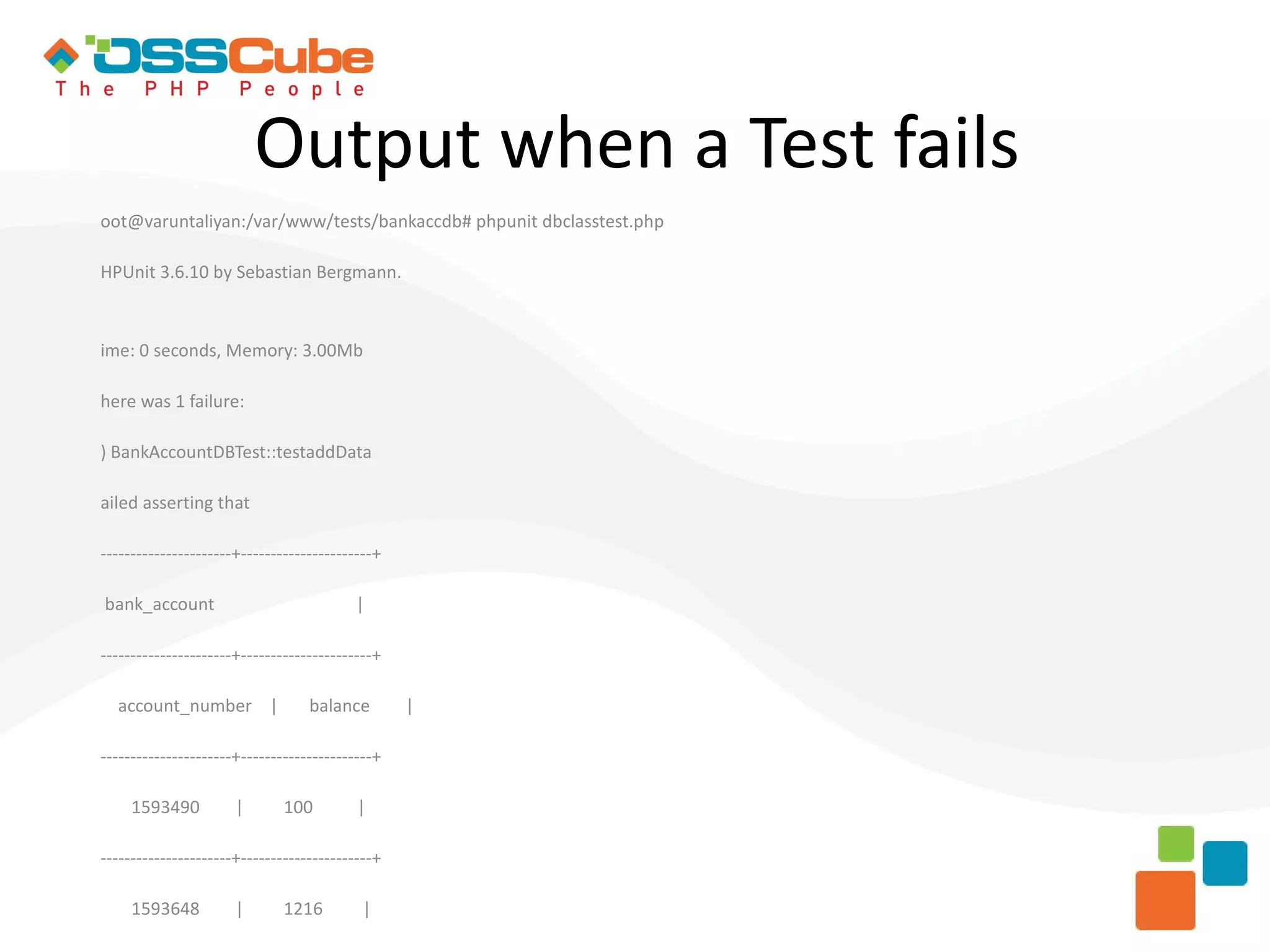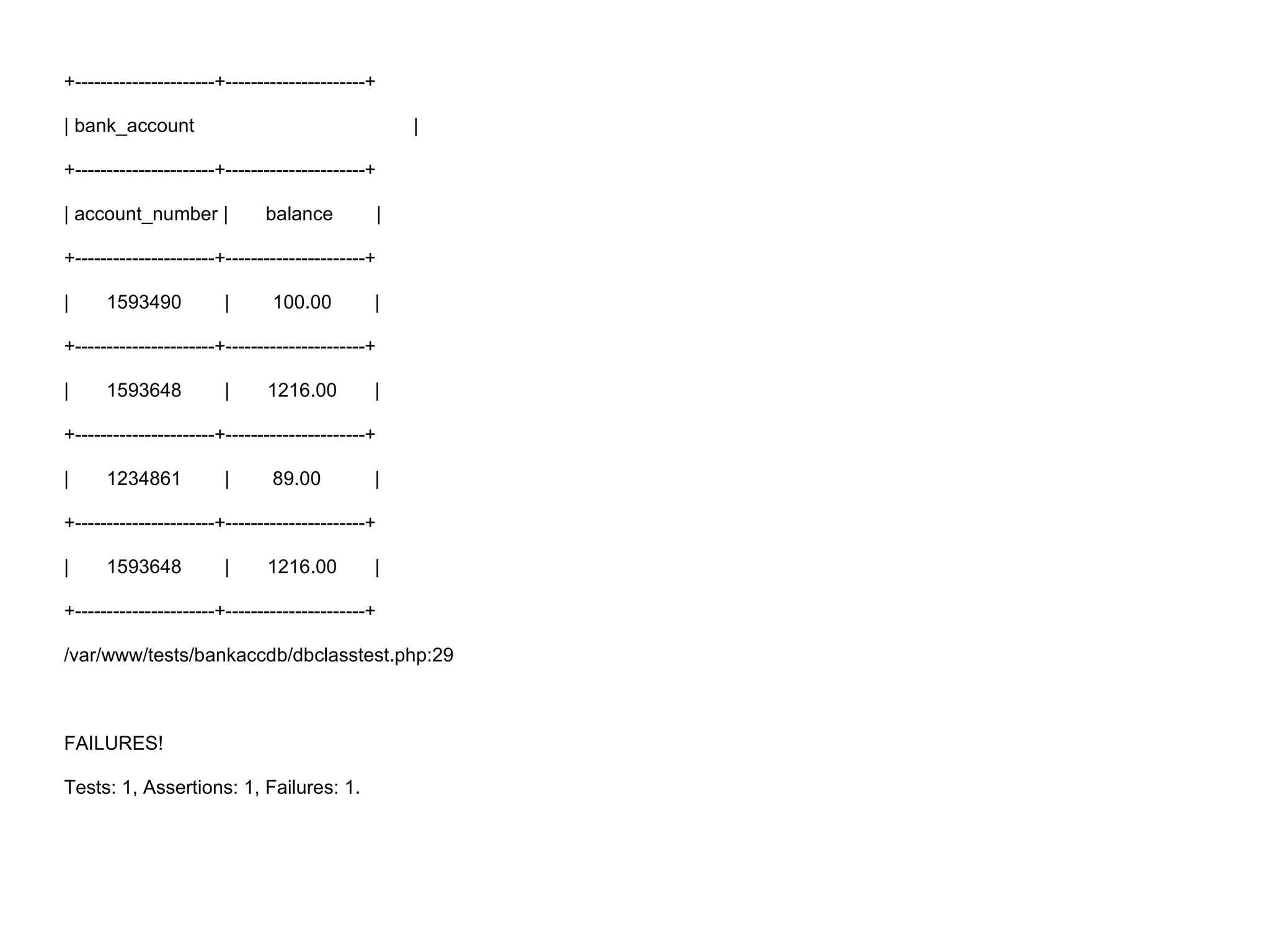PHPUnit is an automated unit testing framework for PHP. It allows developers to write tests for their code in PHP and run those tests to determine if the code is working as expected. Some key aspects of PHPUnit include writing tests in classes that extend the PHPUnit test case class, using assertions to validate expected outcomes, and the ability to test databases and output using PHPUnit extensions. PHPUnit is widely used for test-driven development in PHP projects.

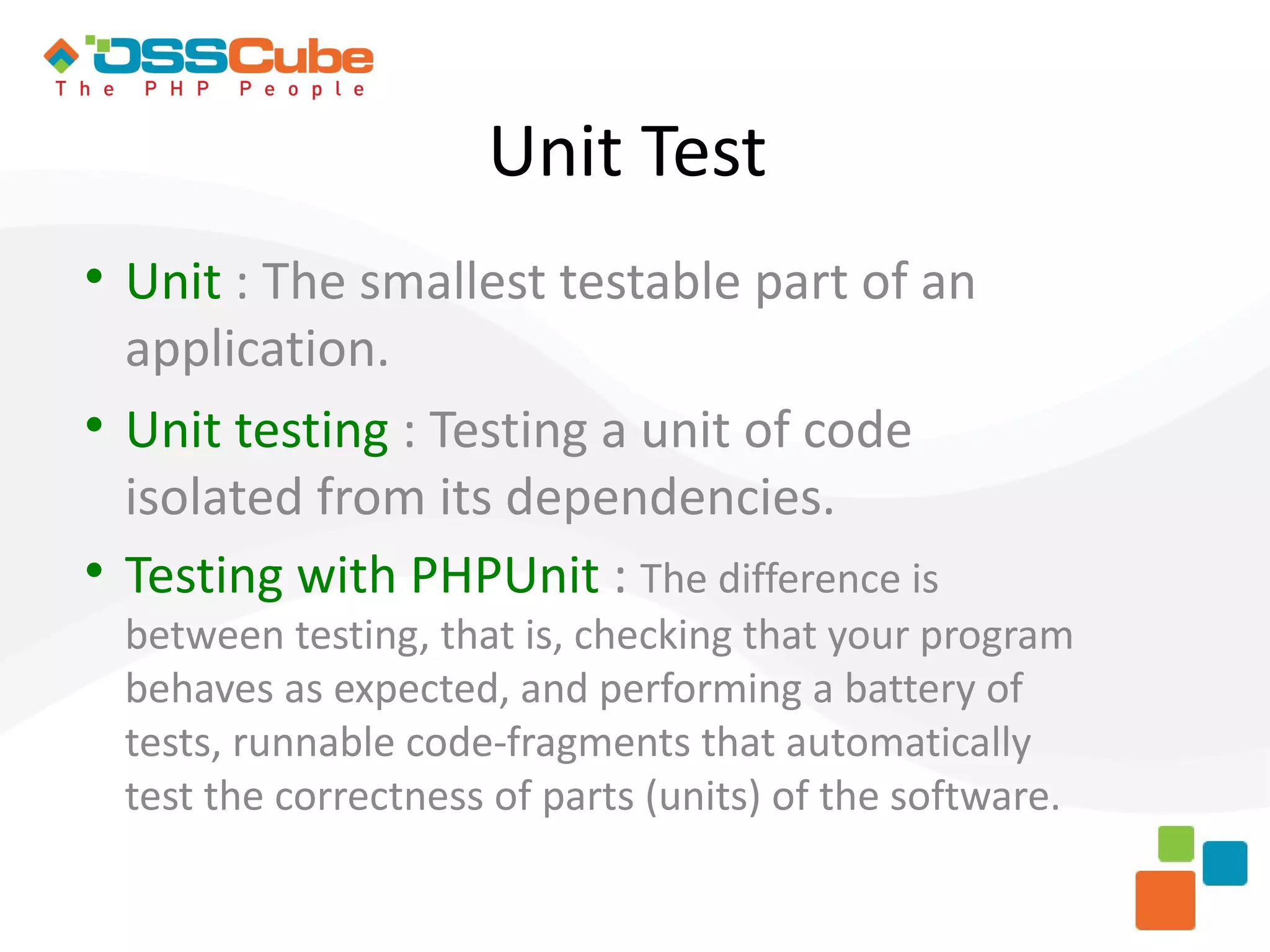




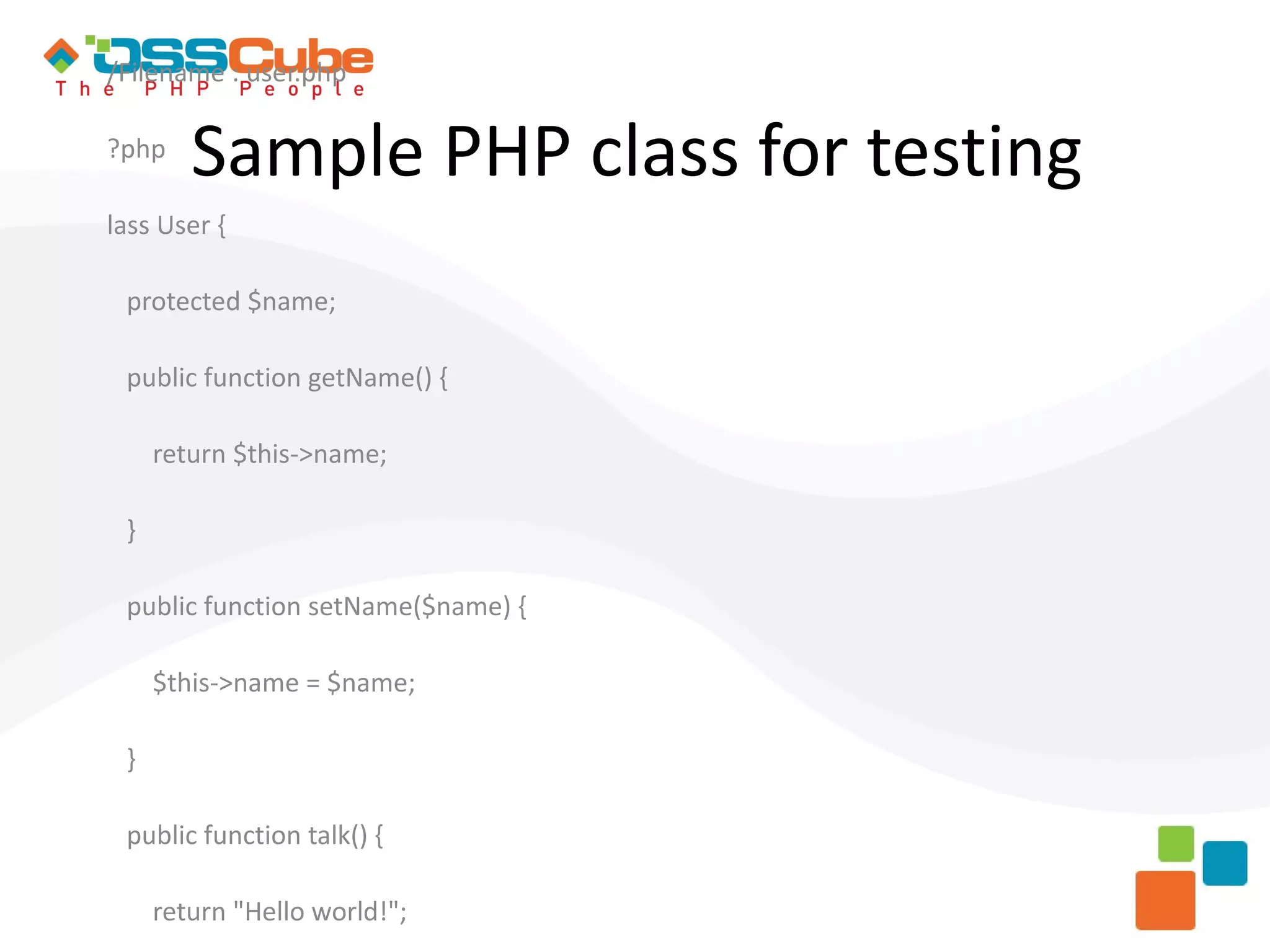
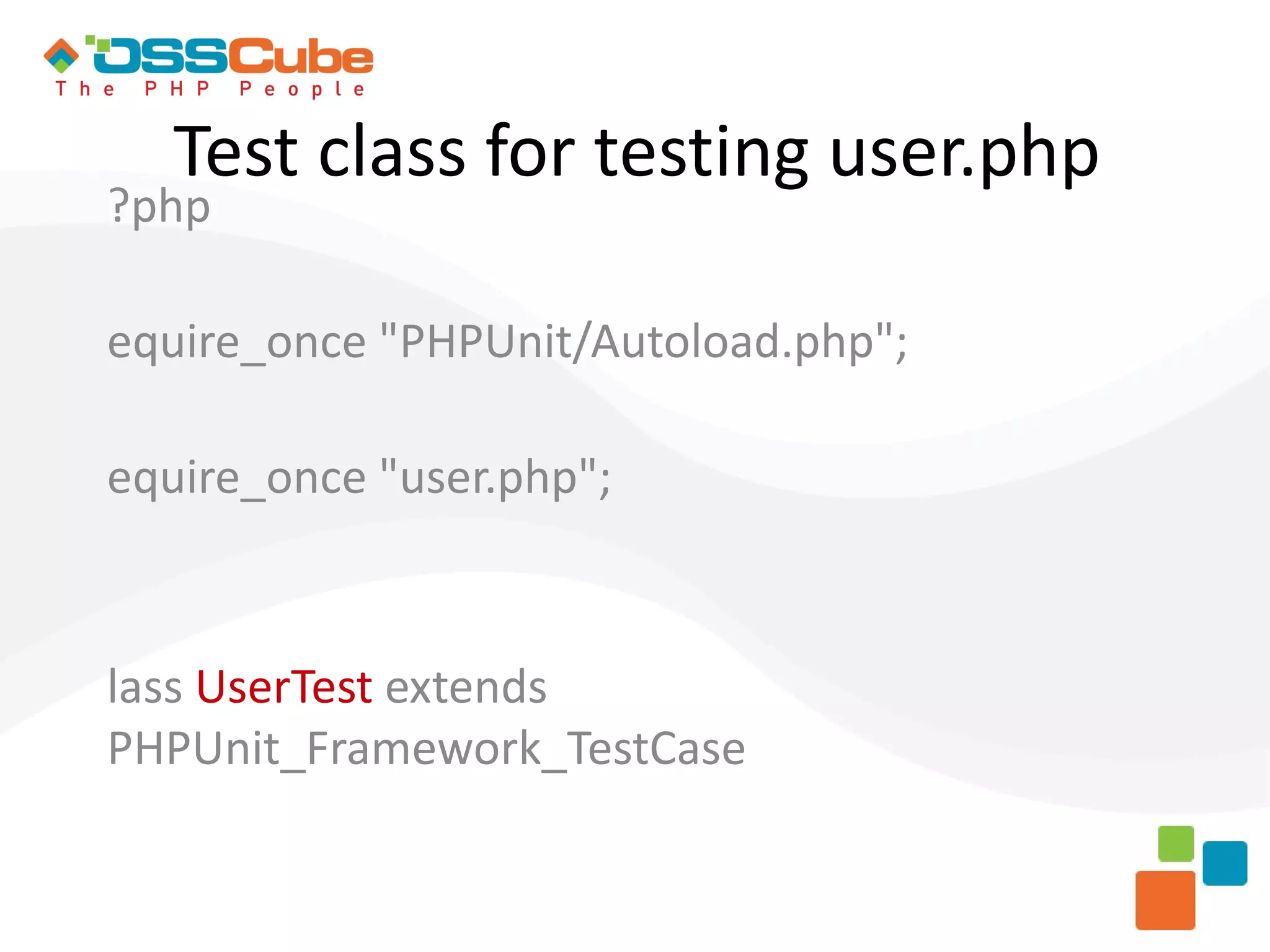


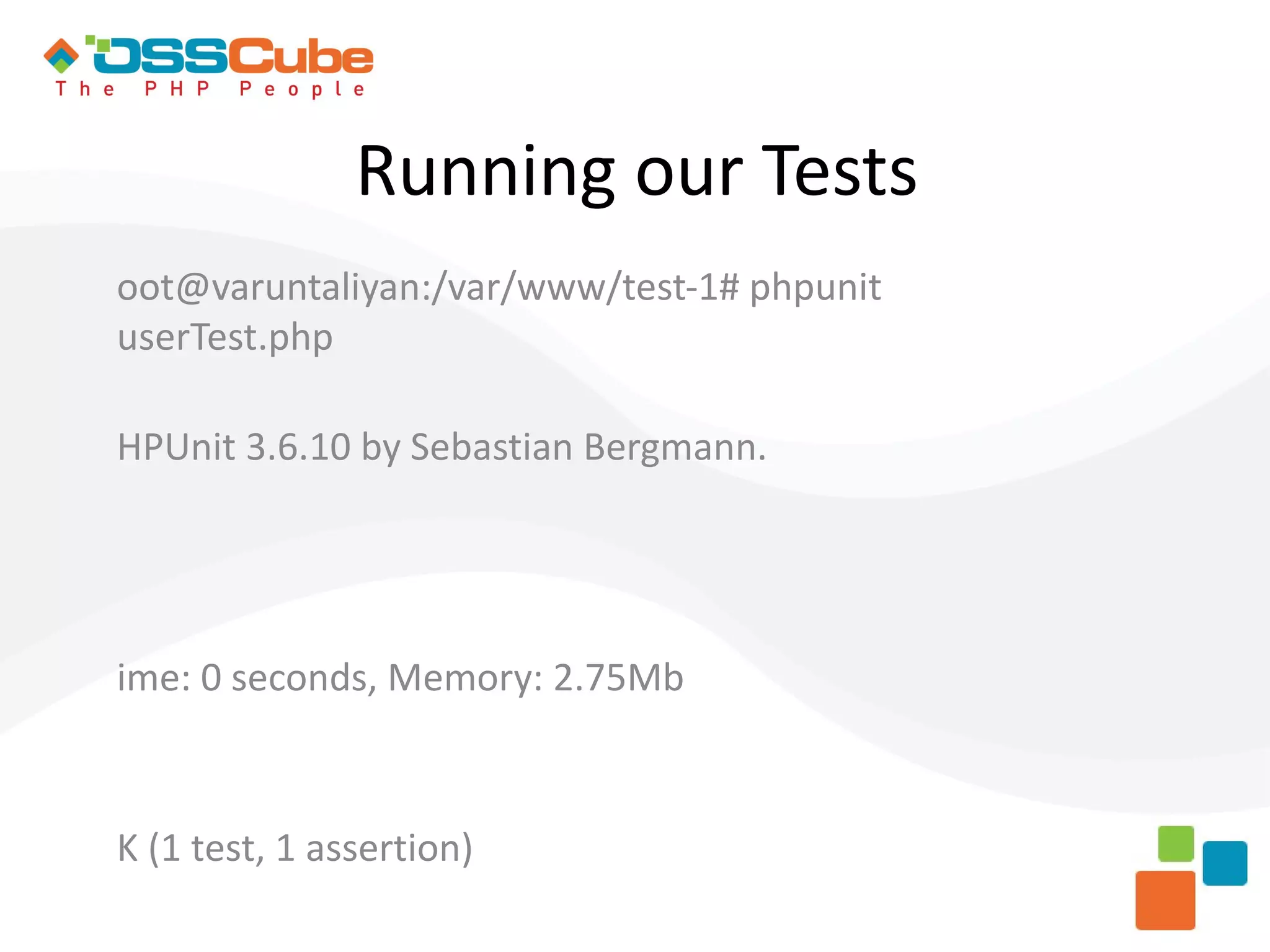
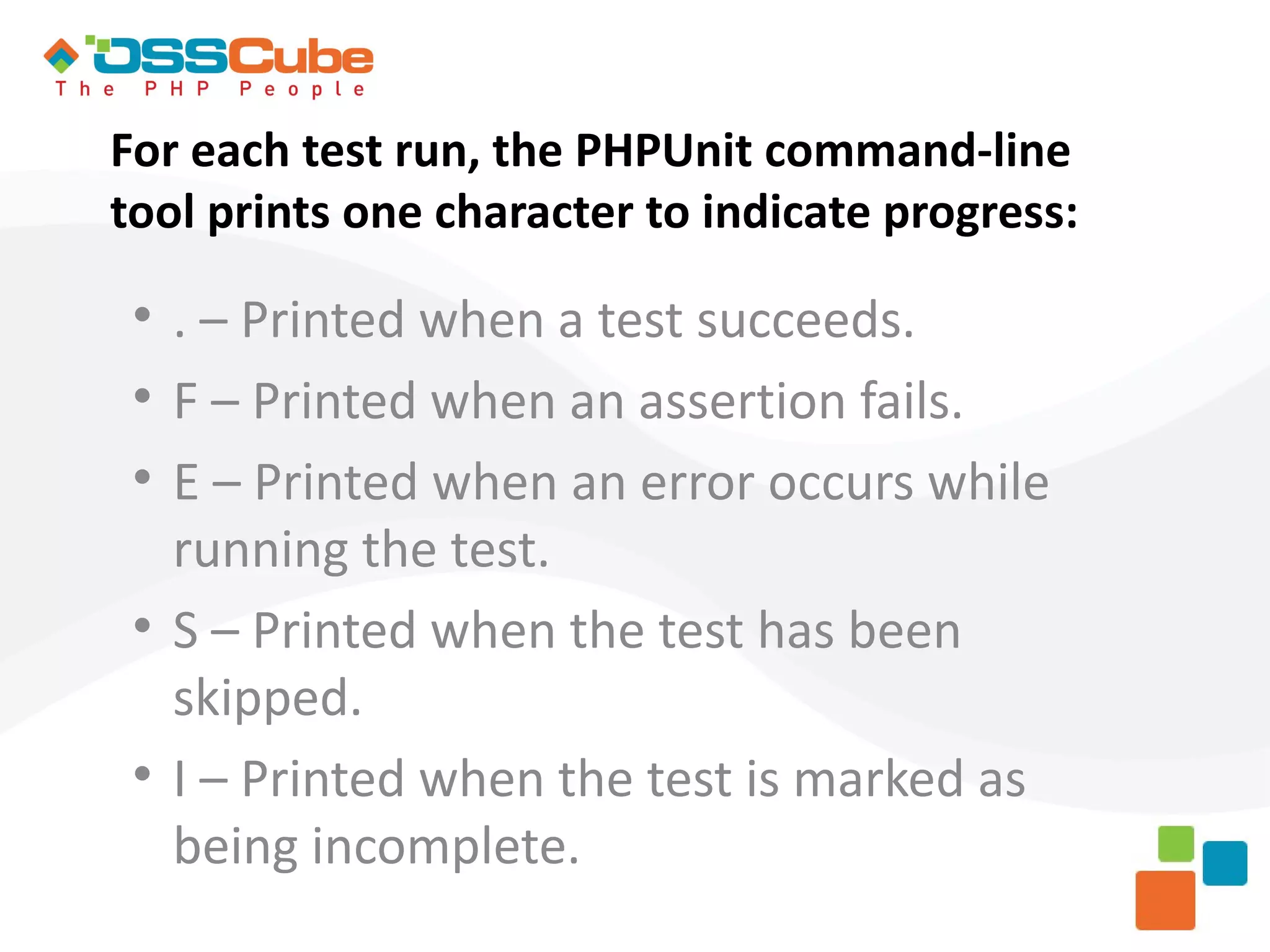
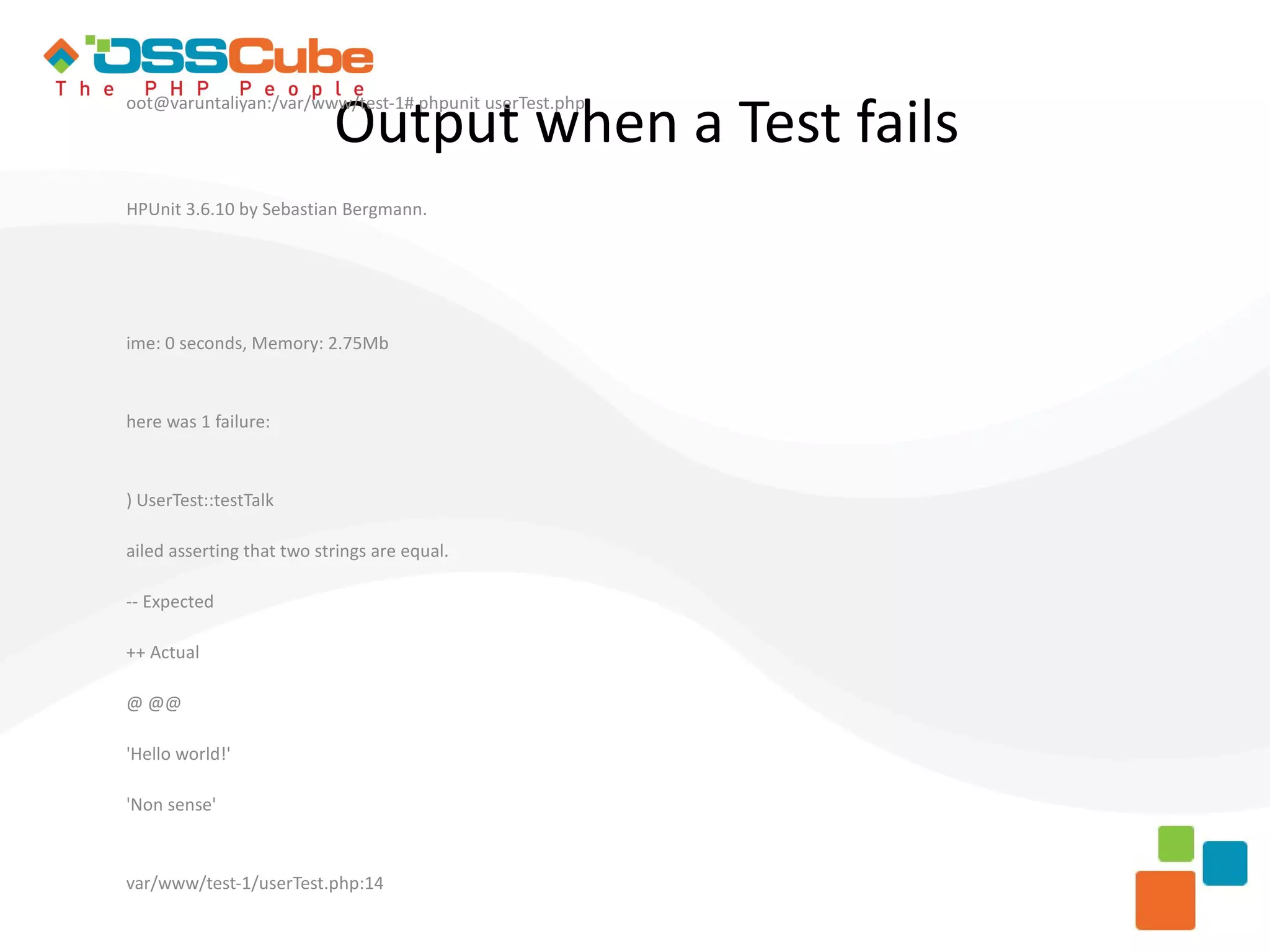
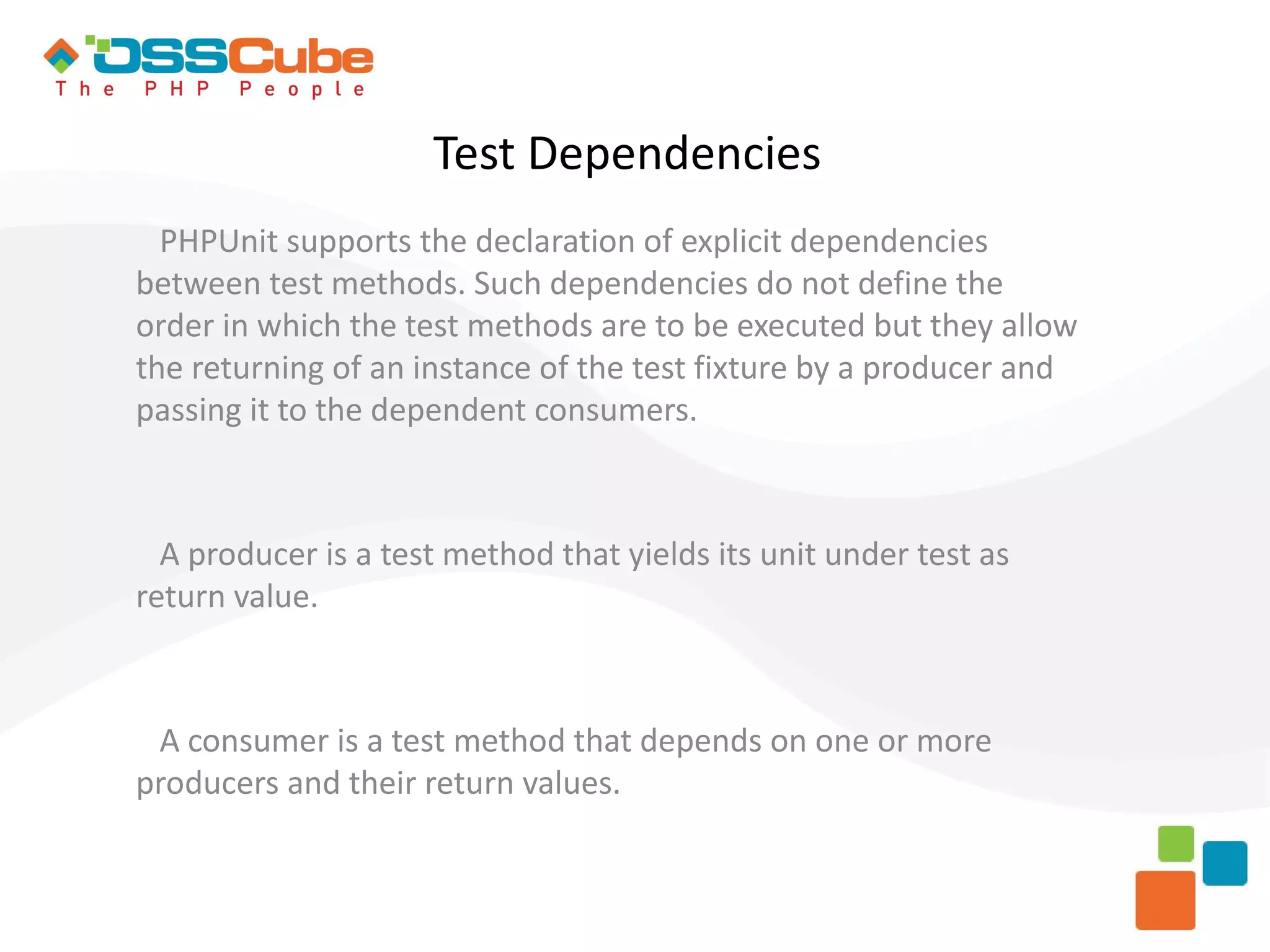
![lass StackTest extends PHPUnit_Framework_TestCase public function testEmpty() Using the @depends annotation to express dependencies { $stack = array(); $this->assertEmpty($stack); return $stack; } /** * @depends testEmpty */ public function testPush(array $stack) { array_push($stack, 'foo'); $this->assertEquals('foo', $stack[count($stack)-1]); $this->assertNotEmpty($stack); return $stack; } /** * @depends testPush */ public function testPop(array $stack) {](https://image.slidesharecdn.com/phpunit-final-120608013242-phpapp01/75/Unit-Testing-using-PHPUnit-15-2048.jpg)
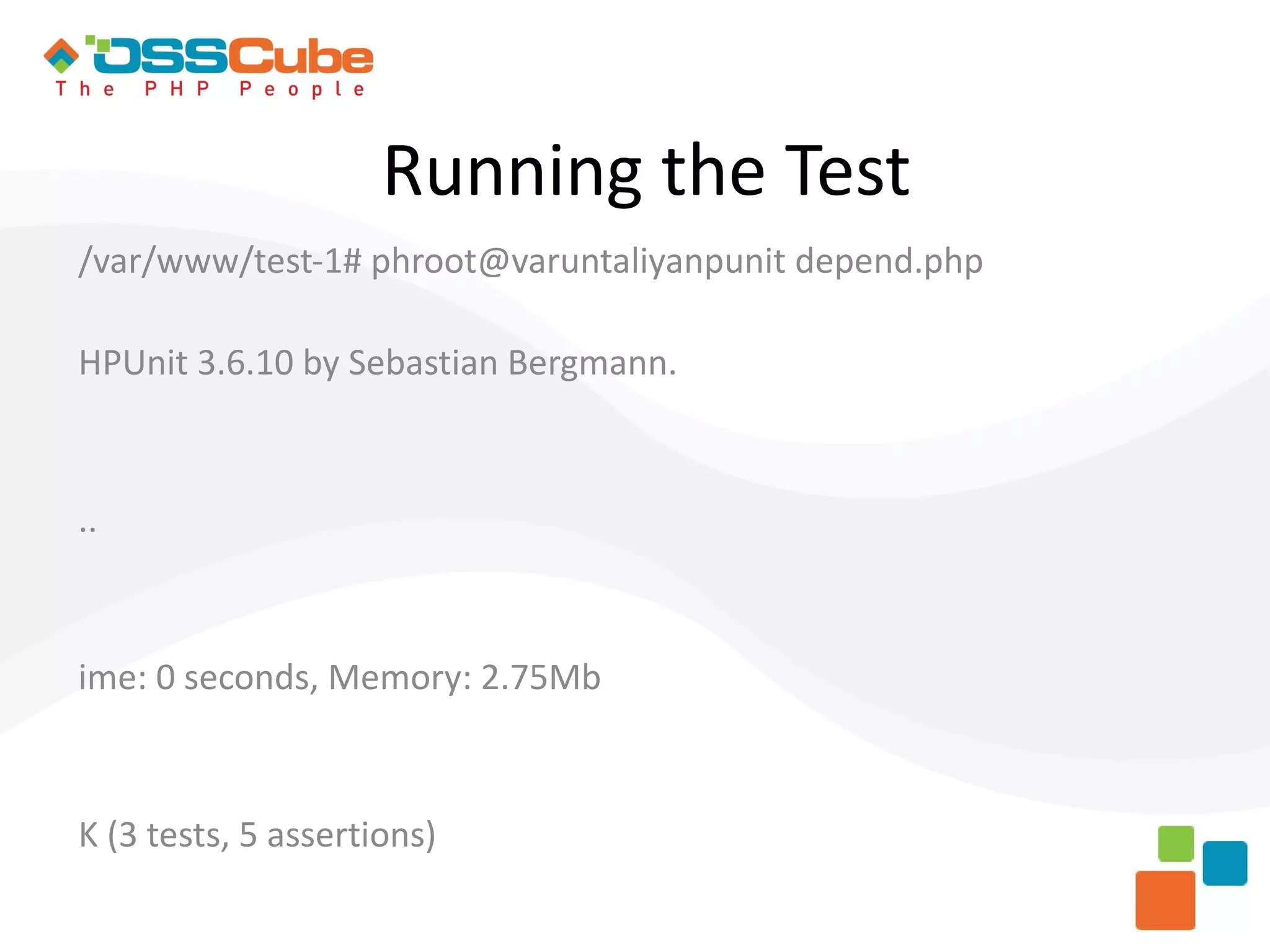


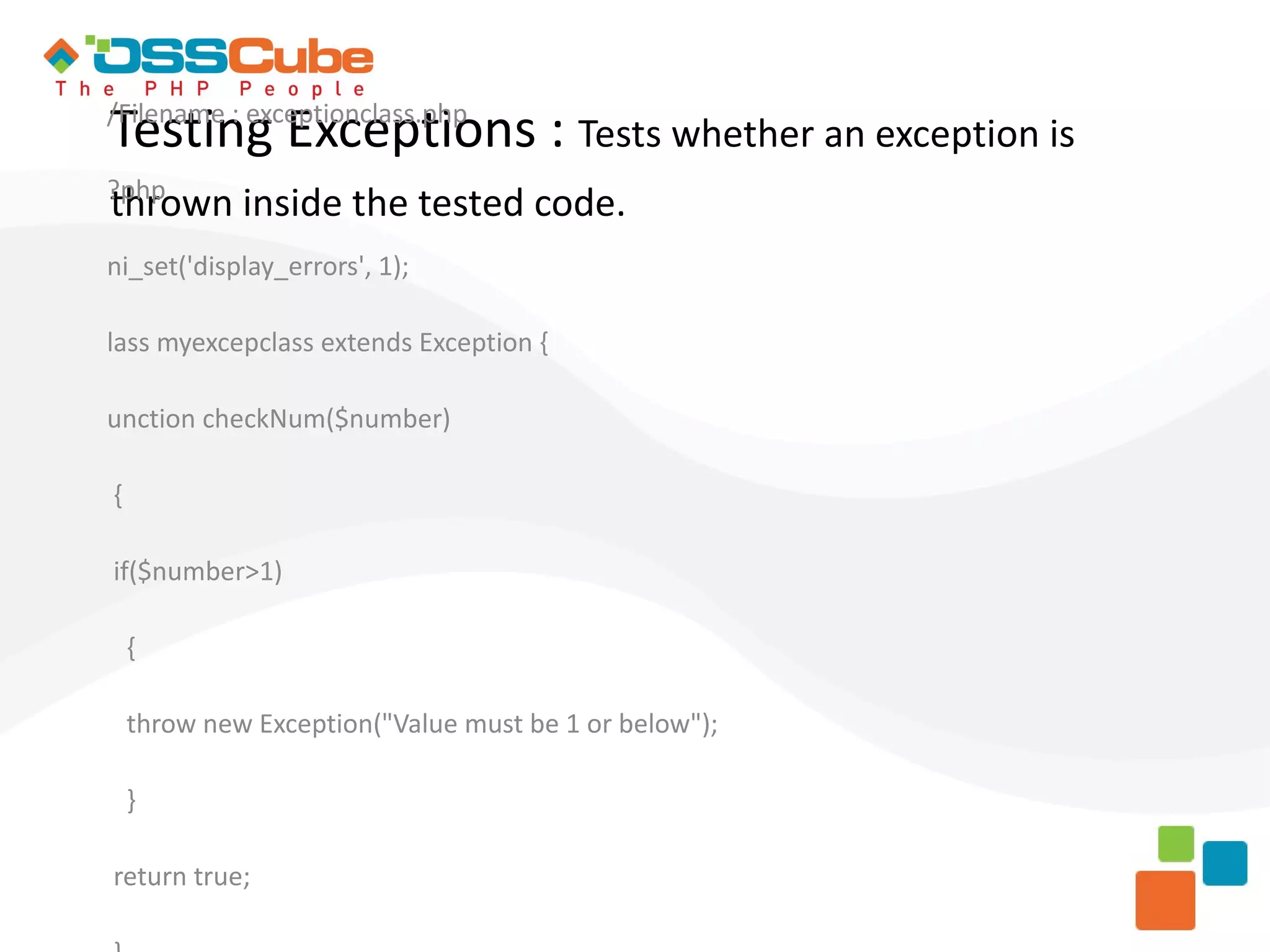
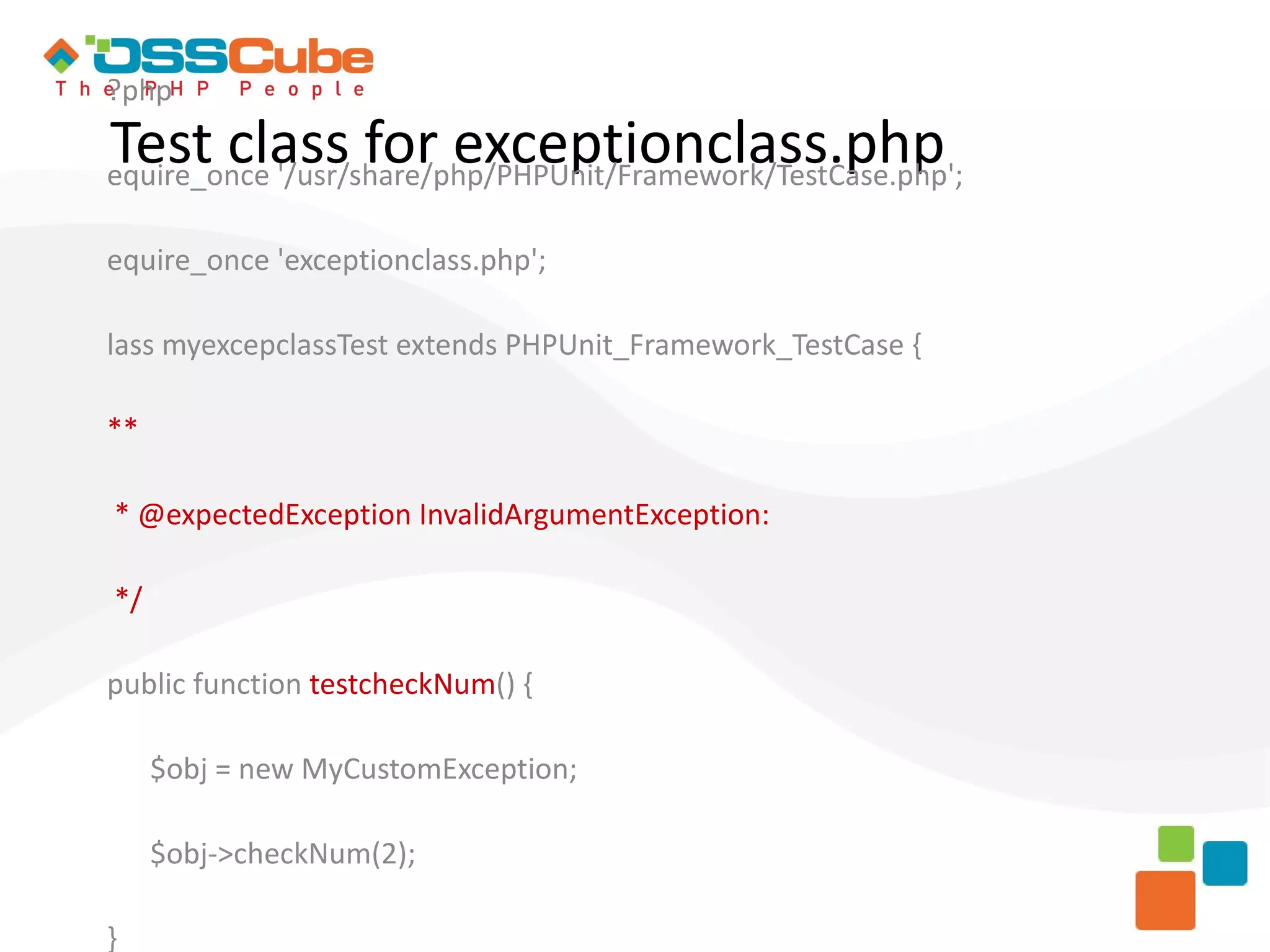
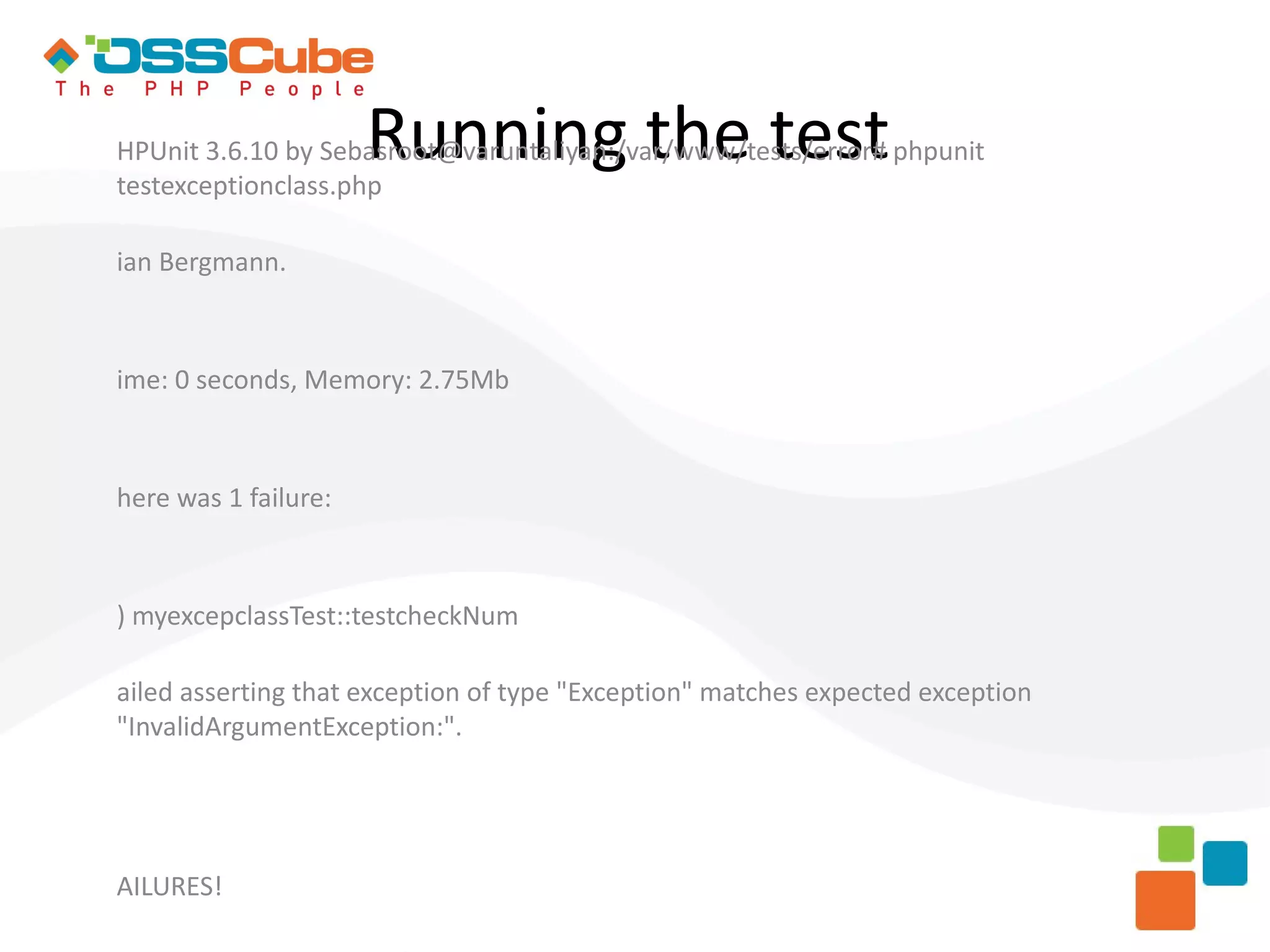
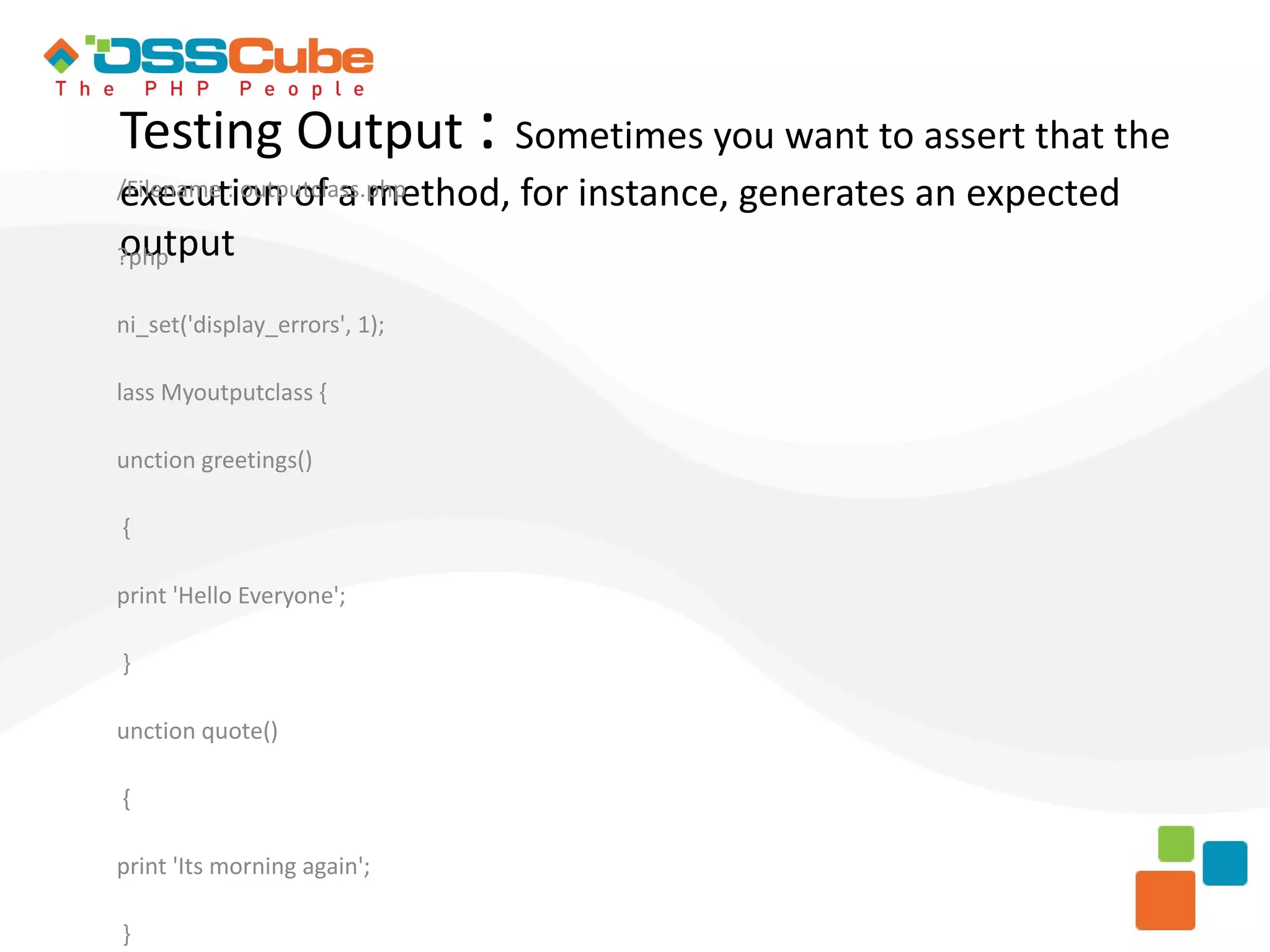

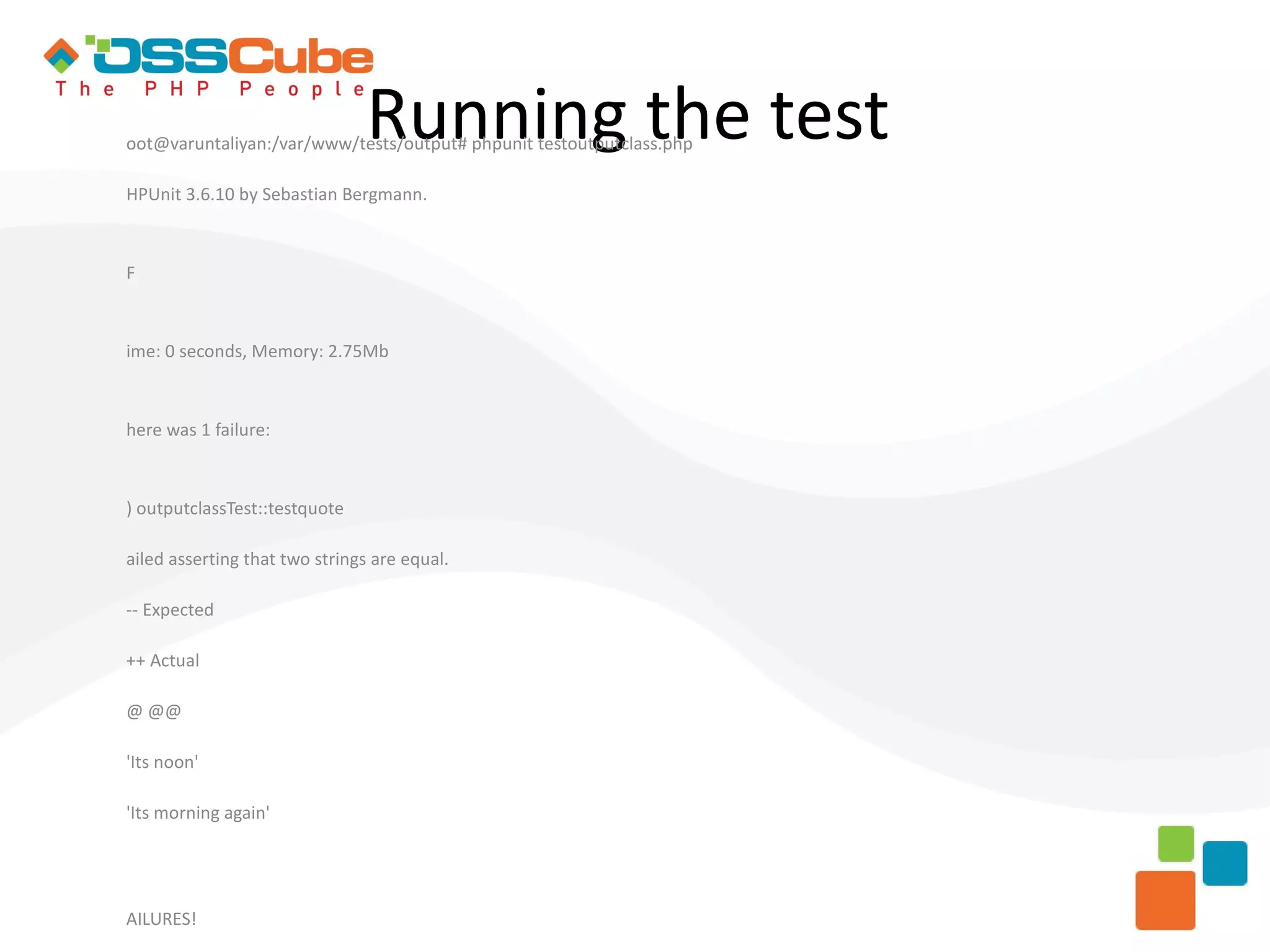
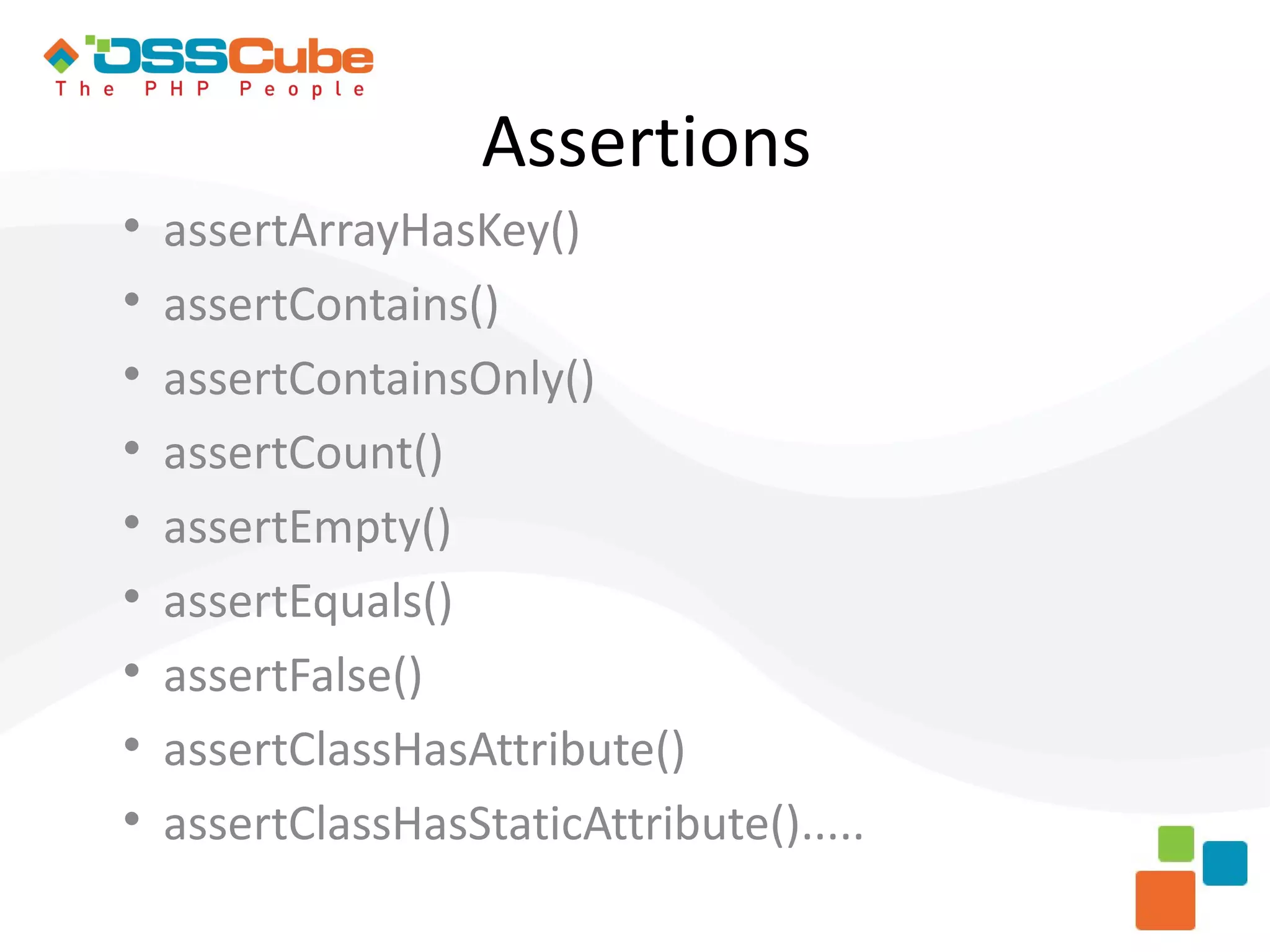
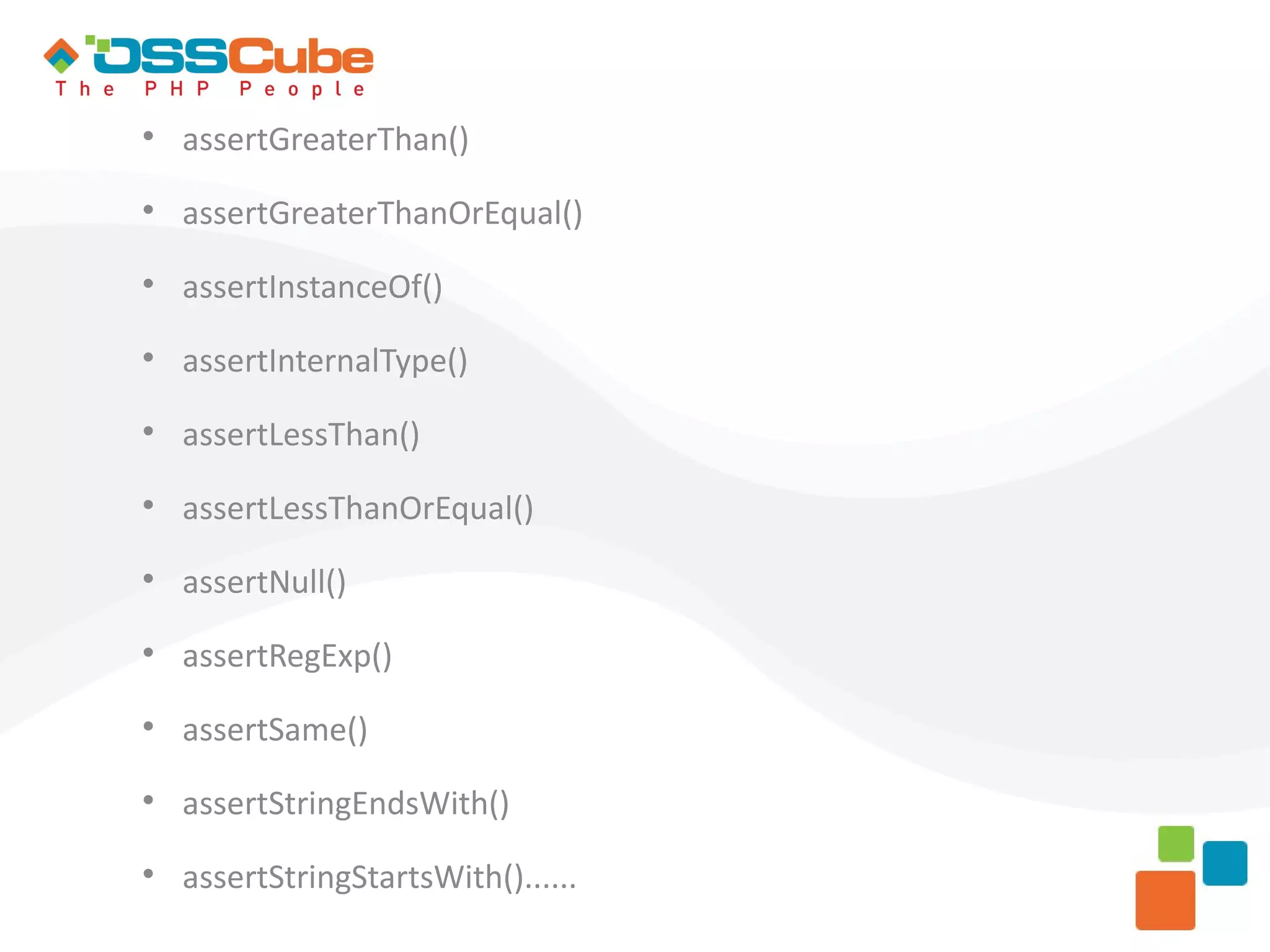
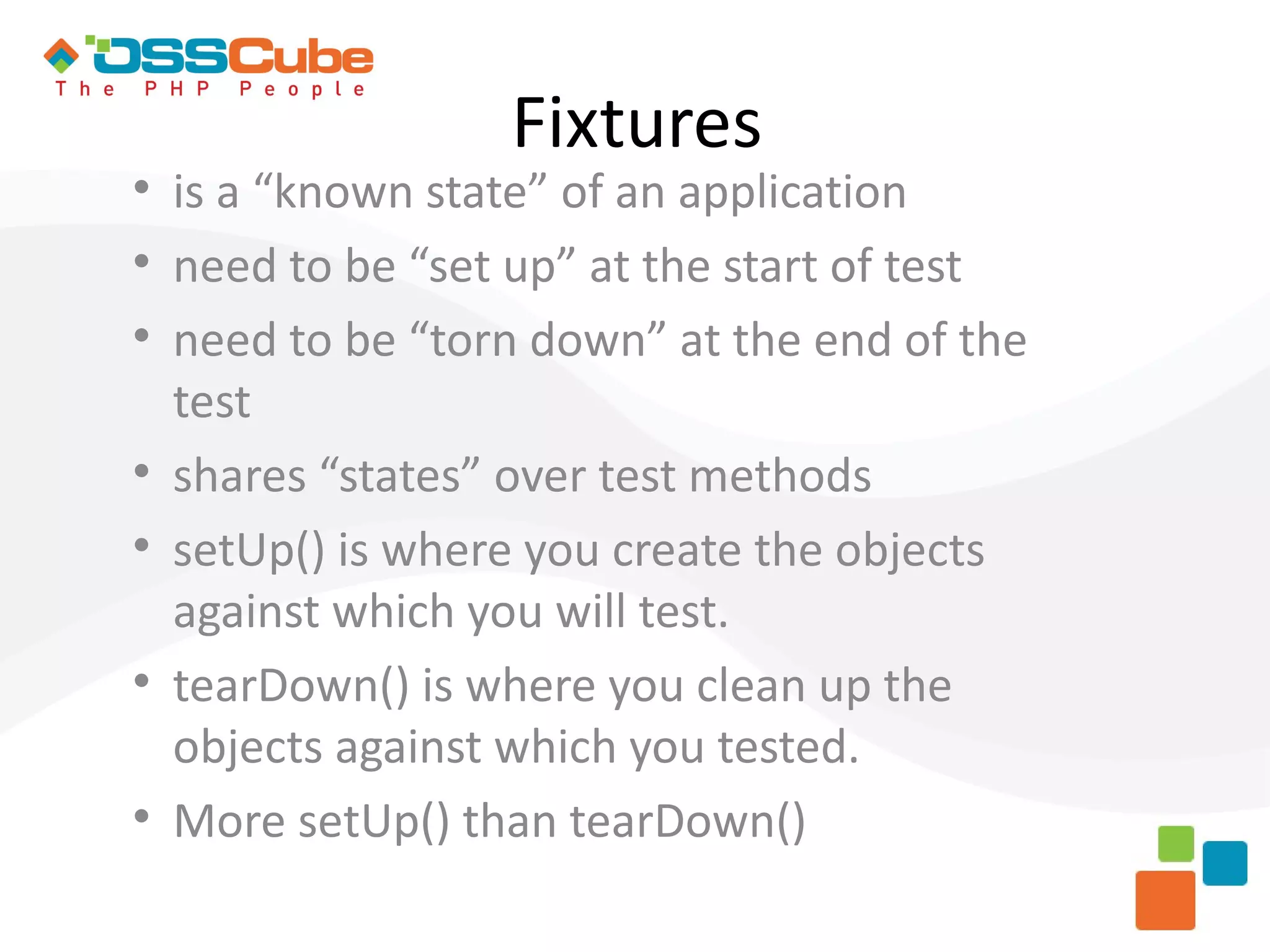
![Using setUp() to create the stack fixture <?php class StackTest extends PHPUnit_Framework_TestCase { protected $stack; protected function setUp() { $this->stack = array(); } public function testEmpty() { $this->assertTrue(empty($this->stack)); } public function testPush() { array_push($this->stack, 'foo'); $this->assertEquals('foo', $this->stack[count($this->stack)-1]); $this->assertFalse(empty($this->stack)); } public function testPop() { array_push($this->stack, 'foo'); $this->assertEquals('foo', array_pop($this->stack)); $this->assertTrue(empty($this->stack)); } } ?>](https://image.slidesharecdn.com/phpunit-final-120608013242-phpapp01/75/Unit-Testing-using-PHPUnit-28-2048.jpg)
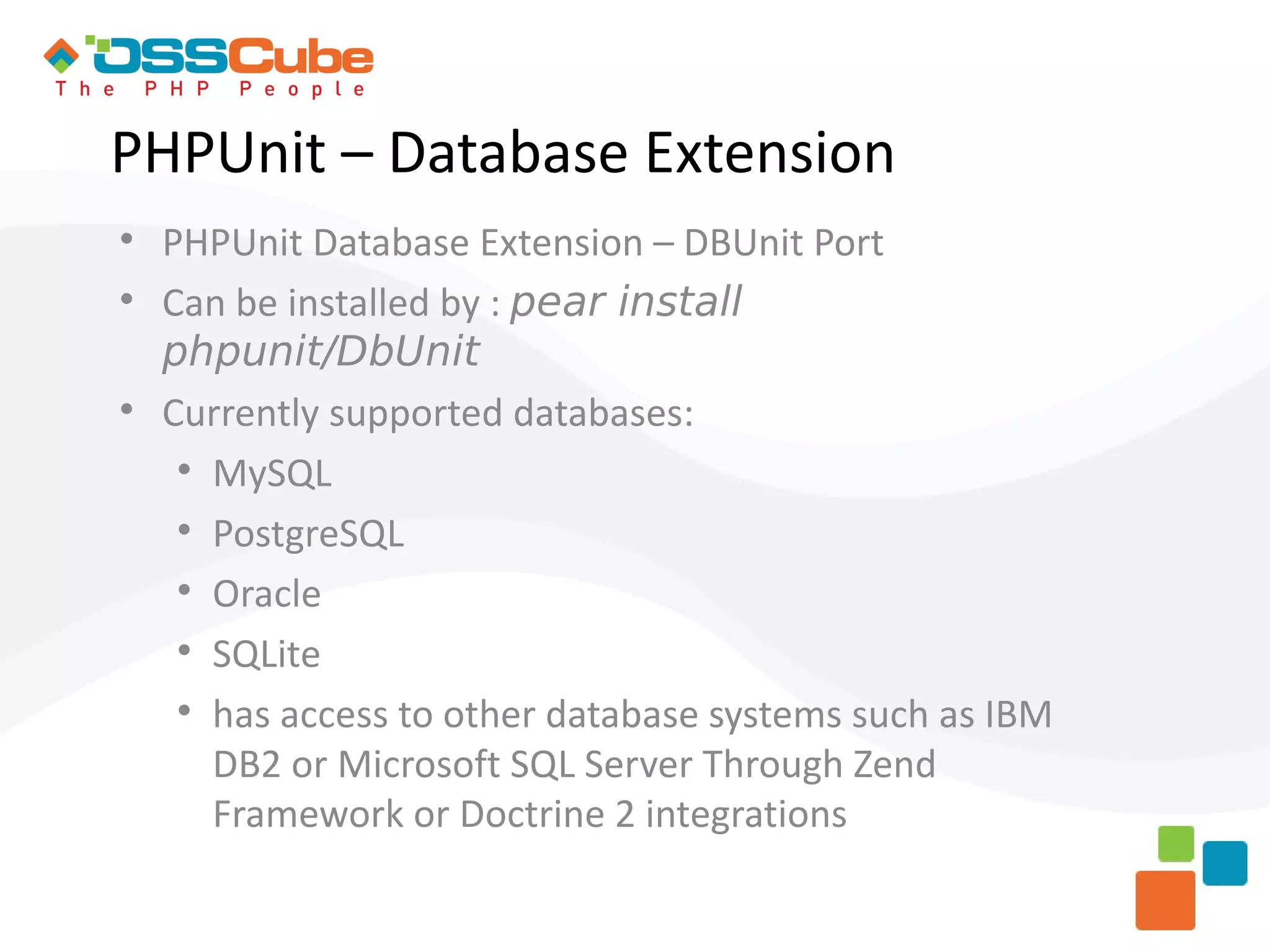
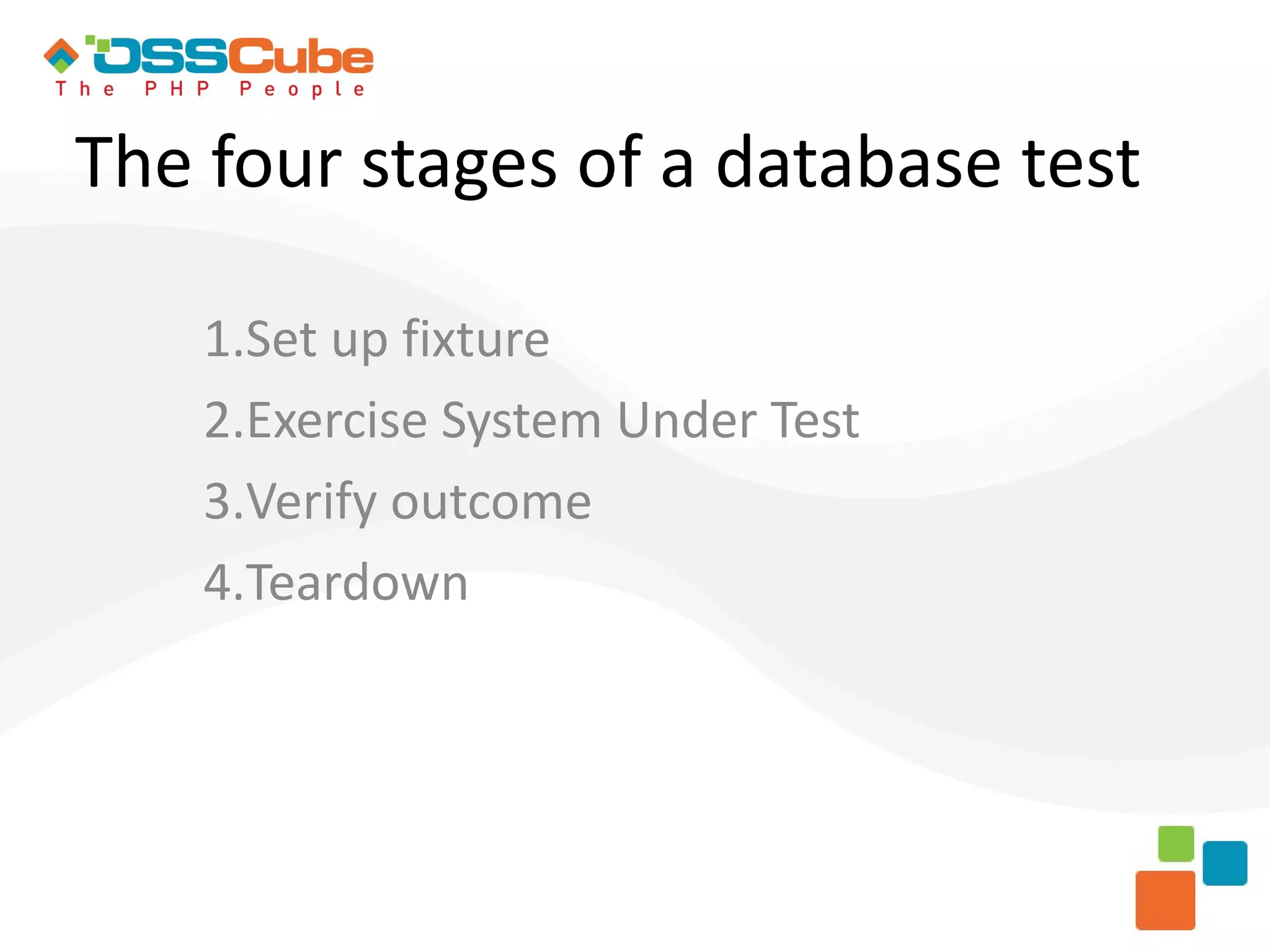
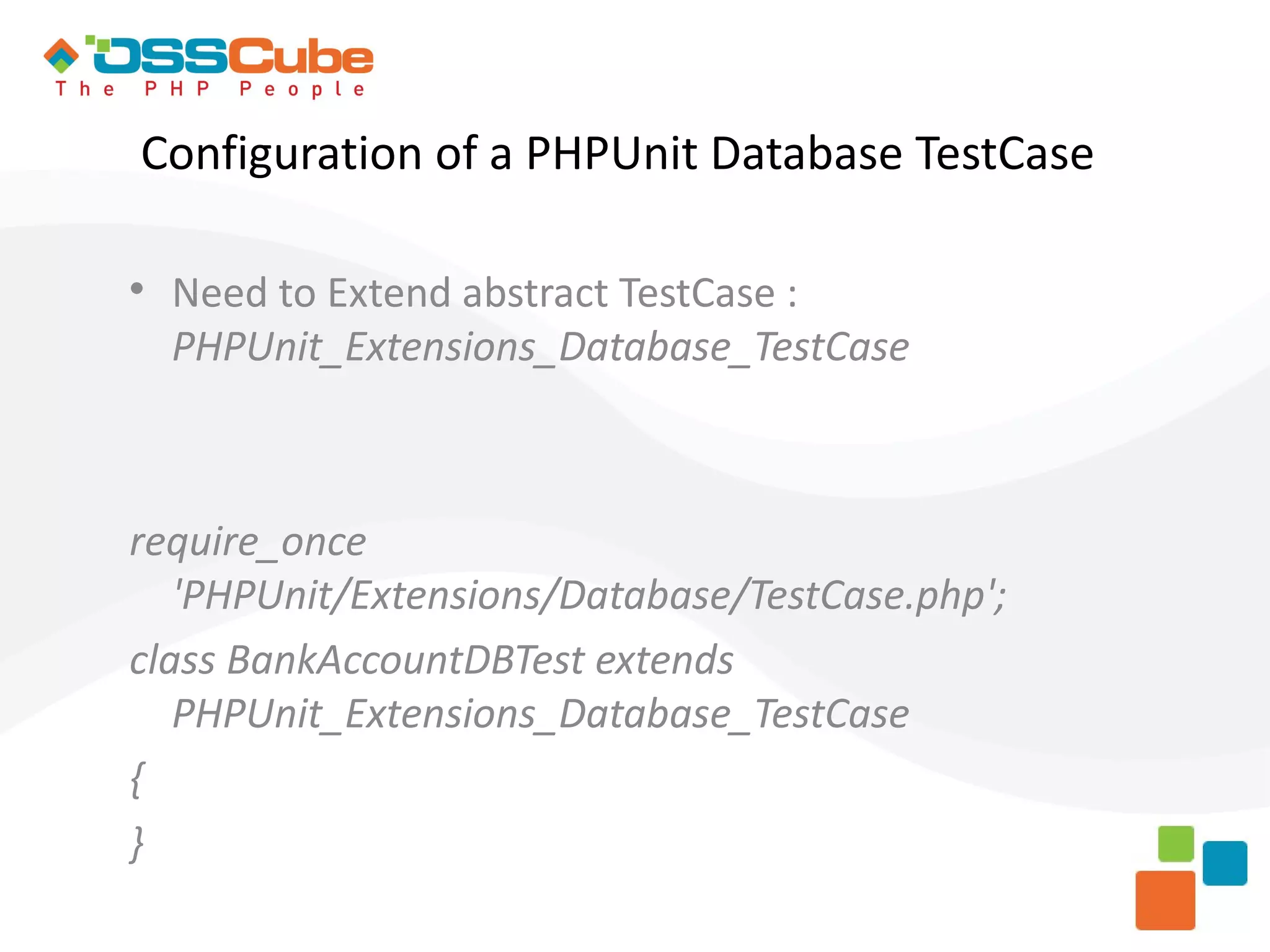
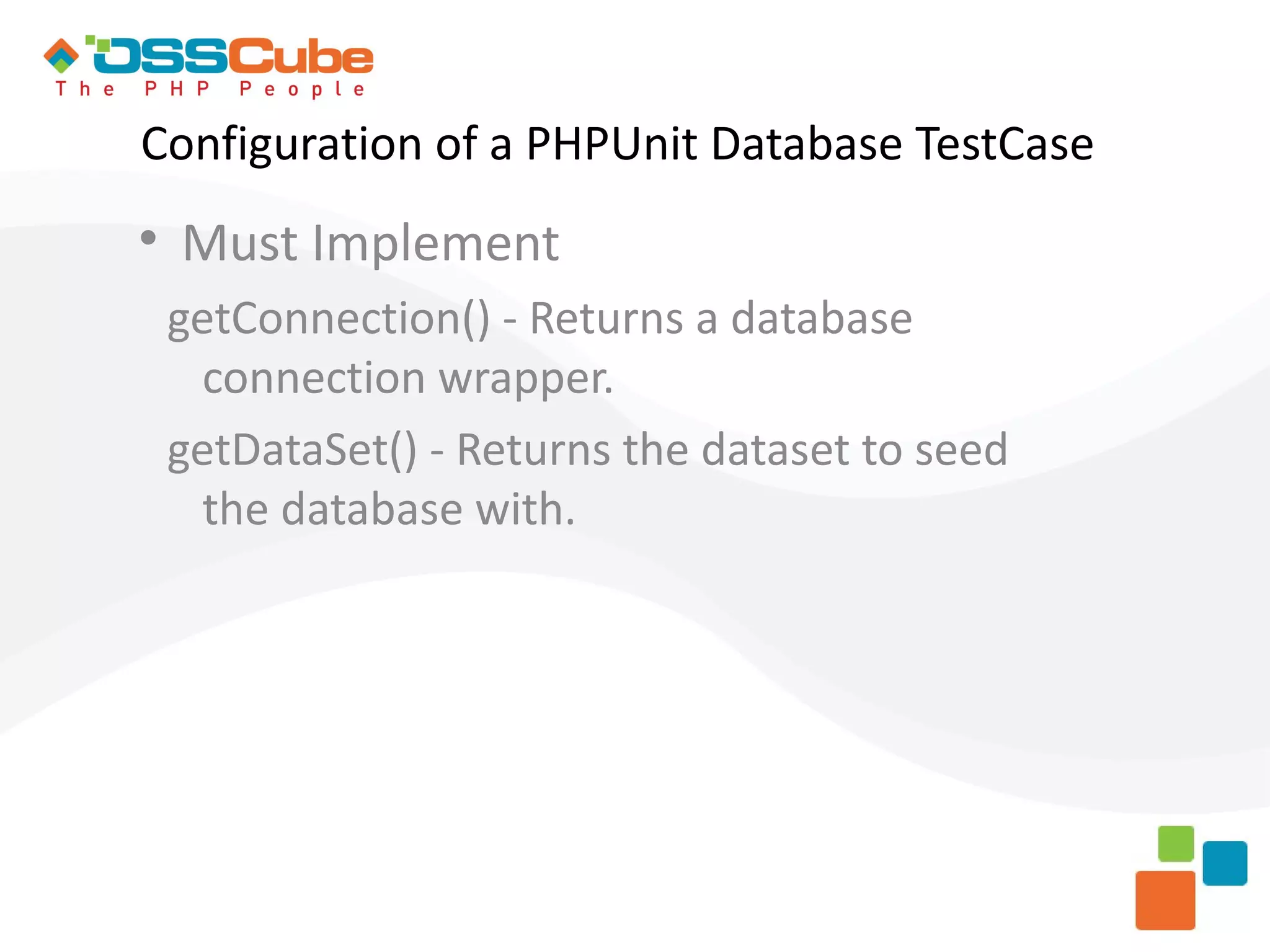
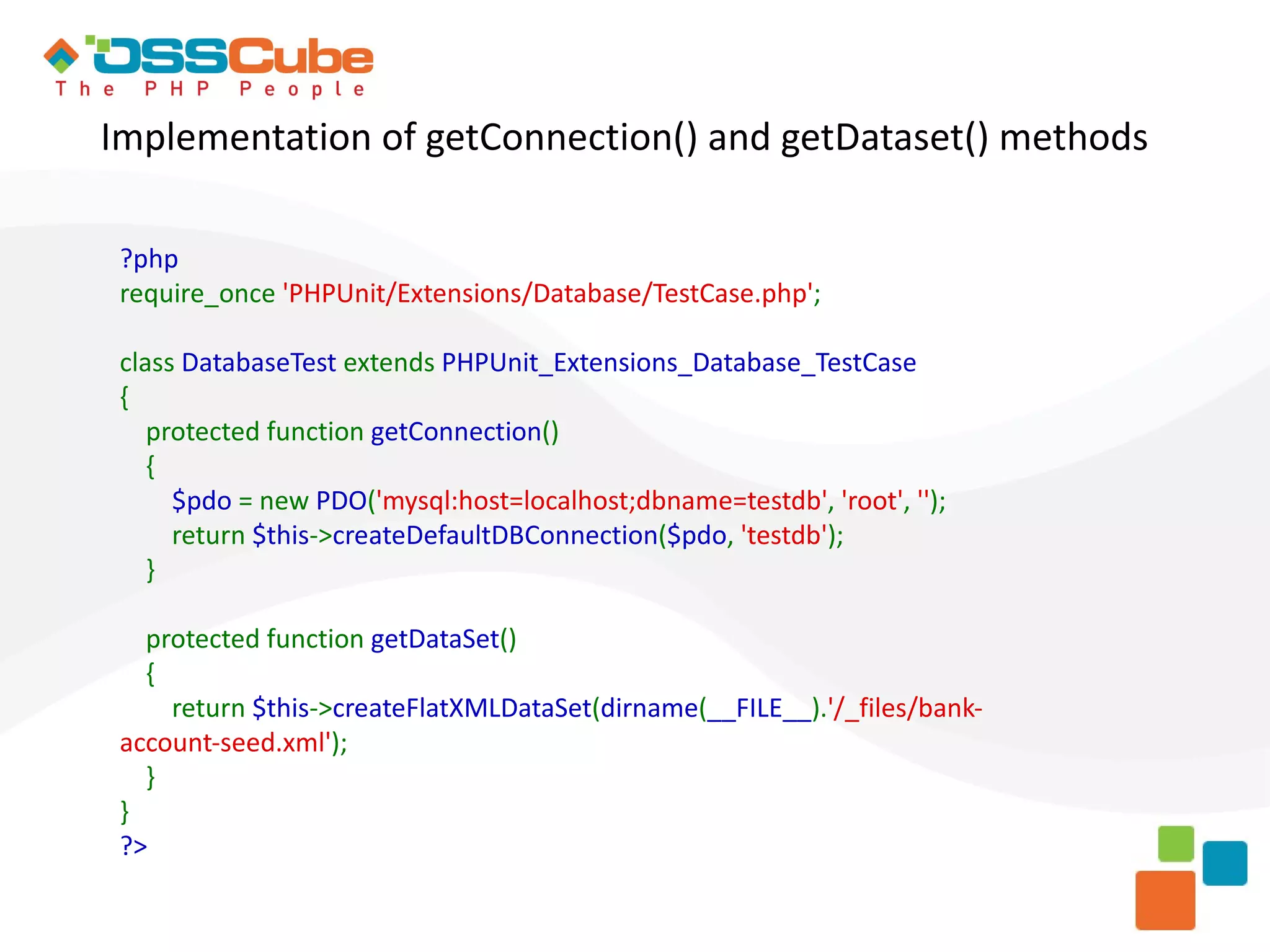
![Test class for database testing /Filename : dbclass.php ?php lass BankAccount { ublic function __construct($accno, $conn, $bal=0) { this->addData(array($accno,$bal),$conn); unction addData($data, $conn) { sql = "INSERT INTO bank_account (account_number, balance) VALUES (:acc,:bal)"; q = $conn->prepare($sql); q->execute(array(':acc'=>$data[0],](https://image.slidesharecdn.com/phpunit-final-120608013242-phpapp01/75/Unit-Testing-using-PHPUnit-34-2048.jpg)
